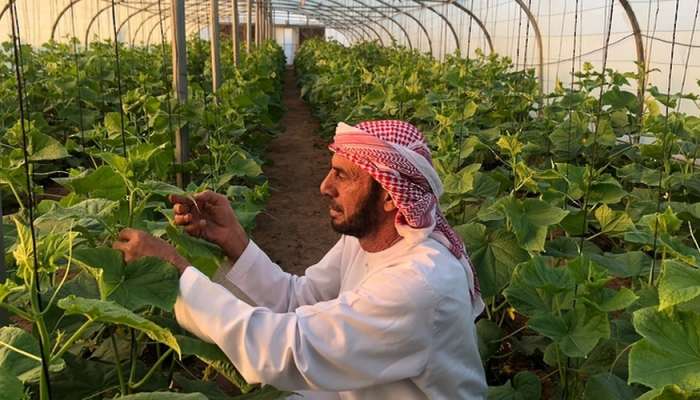
Muscat: The Sultanate of Oman, represented by the Ministry of Agriculture, Fisheries and Water Resources, celebrated Oman Agriculture Day, which falls on October 31, to raise community awareness of the importance of trees in life.
The farm sector- with its components of agriculture, fisheries and water resources - receives a great deal of attention for its tangible role in providing food to people.
The Ministry of Agriculture, Fisheries and Water Resources has adopted many plans, including agricultural, fisheries and water policies and programmes to enhance food scurity. The 2023 annual report issued by the Ministry of Agriculture, Fisheries and Water Resources indicated that the Sultanate of Oman is rich in many components in the plant sector, representing 5.5 million acres of agricultural or reclaimable land, representing 7.5 percent of the total land of the Sultanate of Oman.
The ministry pointed out that the plant sector enjoys environmental and climatic diversity and a solid infrastructure through the establishment of 26 research centres and stations, 18 agricultural quarantines, and the total cultivated area reached 293,000 acres in the year 2023.
The agricultural products and fish imports for the year amounted to OMR1,295 million with an average growth rate of 11 percent, while agricultural and fish exports for the same period amounted to OMR403 million with an average growth rate of 14.4 percent.
The report stated that the self-sufficiency rate for basic commodities produced in the Sultanate of Oman for the year 2023 in vegetables is 77 percent and 97 percent in dates and fruits, excluding dates is 26 percent, according to the bulletin issued by the National Centre for Statistics and Information.
The report stated that the Food Security Laboratories Programme, which is implemented by the Ministry in cooperation with stakeholders from government and academic bodies, private sector companies and institutions, civil society institutions, investors, individuals and beneficiaries of services, contributes to the development of investment projects concerned with food production and modern technologies, increases job opportunities for Omanis and supports local content.
The report indicated that the Ministry of Agriculture, Fisheries and Water Resources seeks to provide basic food commodities and secure their storage to ensure their availability during emergency situations (crises and exceptional climate conditions), in addition to maintaining the stability of food prices and avoiding fluctuations resulting from global economic crises.
The report explained that agricultural, animal and fisheries research contributes to the food security system and plays a fundamental role in evaluating and transferring modern technologies, through implementing research, studies and surveys in a number of fields, including water and agricultural soil management, improving the efficiency of water use in agriculture, and improving the productivity of agricultural crops by developing pre- and post-harvest treatments.
In addition efforts are made to combat agricultural and animal pests and diseases, preserving and improving plant and animal genetic resources and providing scientific data.
The report indicated that the Palm Research Centre for Plant Production works on horticulture research, field crop research, seed research, plant genetic resources, and agricultural industries research, while the Plant Protection Research Center conducts plant disease research, agricultural insect research, and biological control research.
The ministry pointed out that the it is working on many development projects for agricultural and animal research, including the national strategy for the advancement of date palms and increasing the productivity of palm seedlings in the tissue culture laboratory.
The Ministry also implemented the integrated crop pest management project by providing fungicides to combat late blight on tomatoes over an area of 1,000 acres, in addition to the desert locust control project.
The guidance and control project includes two tracks: the new agricultural practices track, and the control track, where 3,970 inspection visits were carried out to agricultural nurseries, factories, local farms, and pesticide sales shops and warehouses, and the number of agricultural seizures and violations reached 261.